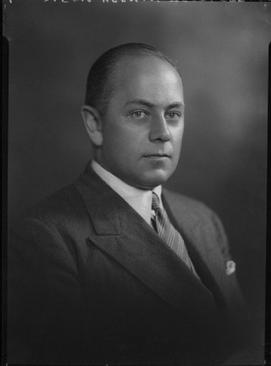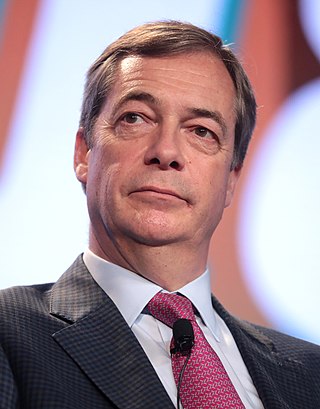Related Research Articles
The National Labour Organisation, also known as the National Labour Committee or simply as National Labour, was a British political group formed after the 1931 creation of the National Government to co-ordinate the efforts of the supporters of the government who had come from the Labour Party. The party leaders were Ramsay MacDonald (1931–1937) and his son Malcolm MacDonald (1937–1945).

Bridgwater was a parliamentary constituency represented in the House of Commons of the Parliament of the United Kingdom, until 2010 when it was replaced by the Bridgwater and West Somerset constituency. It elected one Member of Parliament (MP) by the first past the post system of election.

Charles Vernon Oldfield Bartlett, CBE was an English journalist, politician and author. He served as a Member of Parliament (MP) from 1938 to 1950: first as an Independent Progressive advocating a Popular Front, then for the Common Wealth Party, and then again as an Independent Progressive.

The 1943 Chippenham by-election was a parliamentary by-election held in England on 24 August 1943 for the British House of Commons constituency of Chippenham in Wiltshire.
The 1938 Bridgwater by-election was a parliamentary by-election for the British House of Commons constituency of Bridgwater, Somerset held on 17 November 1938.
The region of South West England has, since the 2010 general election, 55 parliamentary constituencies which is made up of 15 borough constituencies and 40 county constituencies. At that election the Conservative Party held the largest number of constituencies, with 36. The Liberal Democrats had 15 and Labour had 4. At the 2015 general election the Liberal Democrats lost all of their seats, while the Conservatives gained one seat from Labour, leaving the Conservatives with 51 and Labour with 4. In the 2017 general election, the Conservatives remained, by far, the largest party with 47 seats, though losing three to Labour, who won 7, and one to the Liberal Democrats, who won 1. In the 2019 general election, the Conservatives increased their number of seats to 48 by regaining Stroud from Labour, who held their other six seats, while the Liberal Democrats retained their sole seat in Bath.
The 1938 Oxford by-election was a parliamentary by-election for the British House of Commons constituency of Oxford, held on 27 October 1938. The by-election was triggered when Robert Croft Bourne, the sitting Conservative Member of Parliament died on 7 August 1938. He had served as MP for the constituency since a 1924 by-election.

On 3 March 2011, a by-election was held for the UK House of Commons constituency of Barnsley Central. The by-election resulted in the Labour Party holding the seat with an increased majority.
The 1939 Holderness by-election was a parliamentary by-election held on 15 February 1939 for the British House of Commons constituency of Holderness in the East Riding of Yorkshire.
The 1939 Batley and Morley by-election was a parliamentary by-election held in the United Kingdom on 9 March 1939 for the House of Commons constituency of Batley and Morley in the West Riding of Yorkshire.

The 1938 Aylesbury by-election was a parliamentary by-election for the British House of Commons constituency of Aylesbury on 19 May 1938.

The 1944 Bury St Edmunds by-election was a parliamentary by-election for the British House of Commons constituency of Bury St Edmunds, Suffolk on 29 February 1944.
The 1937 Combined English Universities by-election was a parliamentary by-election for the British House of Commons dual member constituency of the Combined English Universities held on 22 March 1937.
Vernon Gerald Bailey, was a prominent British peace campaigner and Liberal Party politician who was an early pioneer of a Popular Front later advocated by Sir Stafford Cripps.
The Popular Front in the United Kingdom attempted an alliance between political parties and individuals of the left and centre-left in the late 1930s to come together to challenge the appeasement policies of the National Government led by Neville Chamberlain.

The 2019 European Parliament election was the United Kingdom's component of the 2019 European Parliament election, held on Thursday 23 May 2019 and the results were announced on Sunday 26 and Monday 27 May 2019, after all the other EU countries had voted. This was the United Kingdom's final participation in a European Parliament election before leaving the European Union on 31 January 2020, and was also the last election to be held under the provisions of the European Parliamentary Elections Act 2002 before its repeal under the European Union (Withdrawal) Act 2018.

On 1 December 2016, a by-election was held in the UK parliamentary constituency of Richmond Park. It was triggered by the resignation of the Conservative Member of Parliament Zac Goldsmith on 25 October 2016 over the Government's proposal for a third runway at the nearby Heathrow Airport. It was won by Sarah Olney of the Liberal Democrats, after a campaign focused on opposition to Brexit.
A by-election for the House of Commons constituency of Sleaford and North Hykeham in Lincolnshire, England, was held on 8 December 2016. It was triggered by the resignation of the Conservative member of parliament (MP) Stephen Phillips, who left Parliament on 4 November 2016 due to policy differences with the Conservative government led by the prime minister, Theresa May, over Brexit – the British withdrawal from the European Union (EU). The Conservatives nominated Caroline Johnson, a paediatrician, to replace Phillips; she won the by-election with more than 50 per cent of the vote, a sizable majority. The Conservatives' vote share fell slightly compared to the result at the previous general election in 2015.

A by-election for the House of Commons constituency of Manchester Gorton was scheduled to take place on 4 May 2017, following the death of the sitting Labour Member of Parliament (MP), Sir Gerald Kaufman. It was cancelled on 20 April following the announcement of the 2017 general election. At the general election in June, most of the candidates who were due to stand in the by-election contested the seat, and the Labour candidate, Afzal Khan, retained the seat for his party with a large majority.
The 2019 North East Lincolnshire Council election took place on 2 May 2019 to elect members of North East Lincolnshire Council in England. This was on the same day as other local elections.
References
- ↑ British parliamentary election results, 1918-1949 (Craig)
- ↑ Wintour, Patrick (19 July 2016). "Liberals, celebrities and EU supporters set up progressive movement" . Retrieved 24 July 2016.
- ↑ Shead, Sam (24 July 2016). "Paddy Ashdown has launched a tech-driven political startup called More United that will crowdfund MPs across all parties" . Retrieved 24 July 2016.